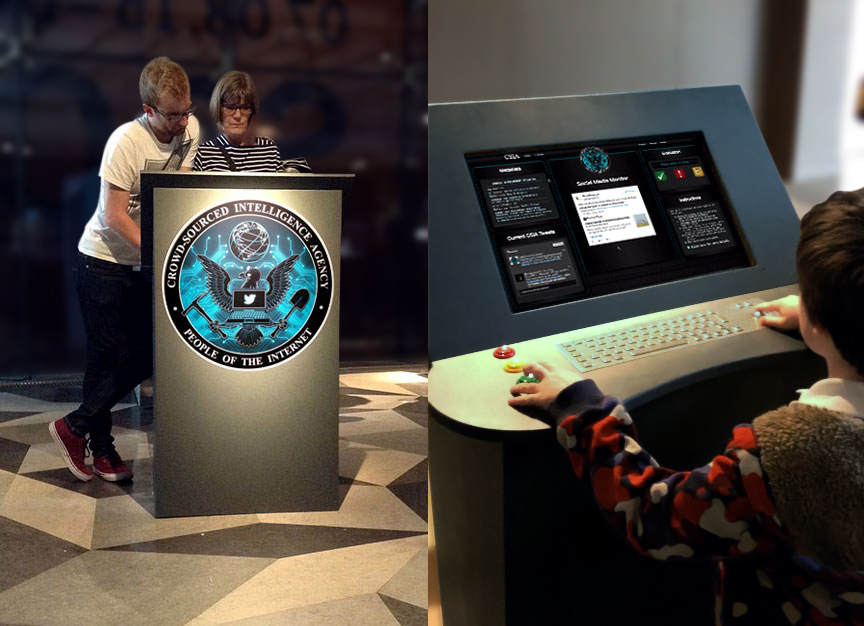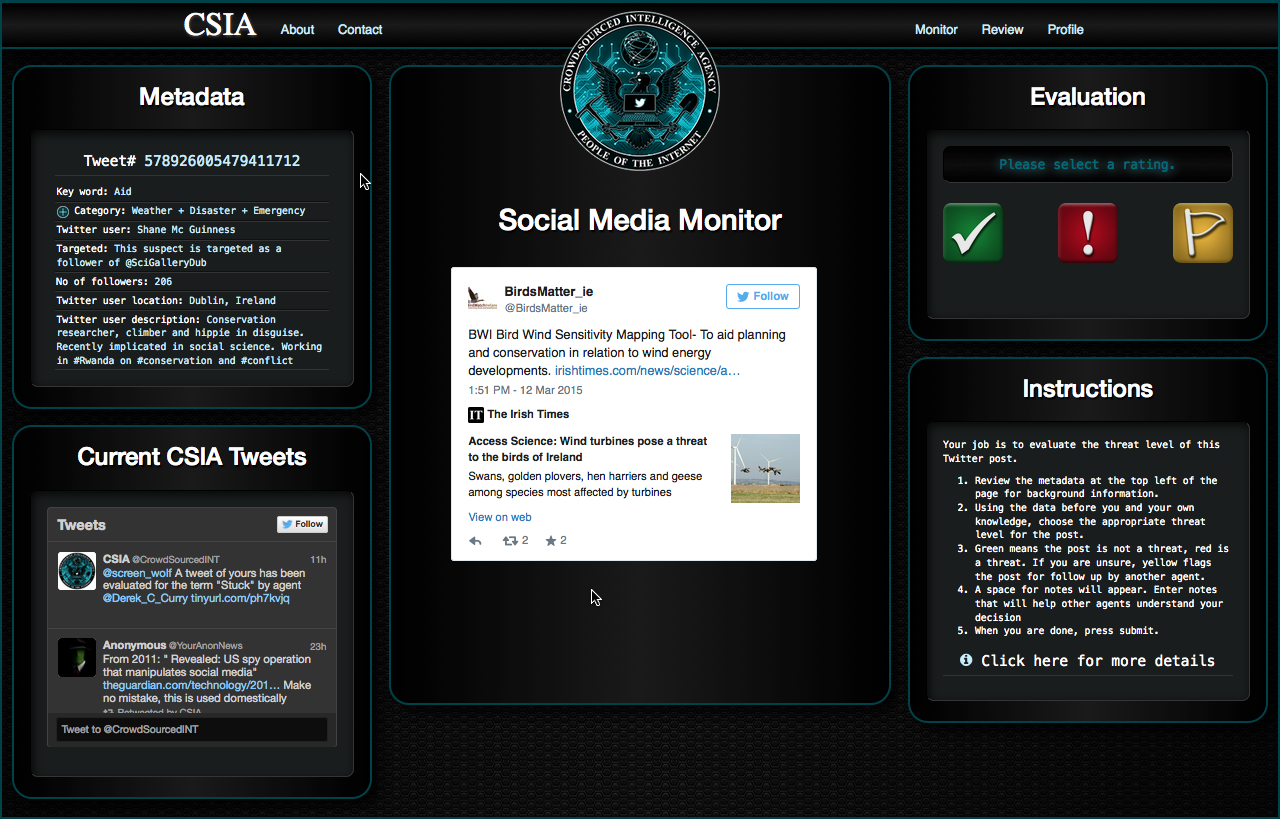Crowd-Sourced Intelligence Agency
Participatory Surveillance
The Crowd-Sourced Intelligence Agency (CSIA) was an online application, interactive installation, and research project that replicated aspects of Open-Source Intelligence (OSINT) surveillance systems, including an interface with multiple machine-learning classifiers for predictive policing that allowed the viewer to experience how intelligence analysts view social media posts. The CSIA was created by reverse engineering OSINT dataveillance systems that were currently in use. This included analyzing technical manuals, research reports, academic papers, leaked documents, and Freedom of Information Act files.

The application consisted of three main parts: a surveillance interface where users can evaluate Tweets based on their threat to national security, a feature that allowed users to test and search their own social media posts, and a Naïve Bayes supervised machine-learning classifier. Users could review the algorithm’s decisions for accuracy and idiosyncrasies. The CSIA provided first-hand experience with social media monitoring, allowing users to choose how they want to navigate social media surveillance.

The goal of the CSIA was to expose potential problems, assumptions, or oversights inherent in current dataveillance processes to help people understand both the effectiveness of OSINT processing and its impact on our privacy.
Through practice-based research, we found that the public cannot have meaningful oversight over automated OSINT processing systems unless they can develop technical literacies and have access to the data used to train machine learning algorithms. Through the many exhibitions and presentations of this project, we found it highly impactful for members of the public to see how their own tweets are recontextualized in the interface of an OSINT system, and how this can affect how their posts may be interpreted.
Publications, press & citations:
- Jennifer Gradecki and Derek Curry. 2017. “Crowd-Sourced Intelligence Agency: Prototyping Counterveillance.” Big Data & Society. June 2017.
- Book Chapter: Derek Curry and Jennifer Gradecki. 2021. “Artistic Research and Technocratic Consciousness,” in Retracing Political Dimensions: Strategies in Contemporary New Media Art, Edited by Inge Hinterwaldner and Oliver Grau, De Gruyter.
- Book Chapter: Derek and Jennifer Gradecki. (2020). “Qualculative Poetics: An Artistic Critique of Rational Judgment.” in Shifting Interfaces: Presence and Reality in New Media Arts of the Early 21st Century. Ed. Hava Aldouby, Leuven University Press.
- Anthony King. 2015. “Digital privacy, Subverting surveillance.” Nature 525(7566), p, 413.
- “The Digital Muddy Expanded Media Festival”, ArShake: Reinventing Technology, May 25, 2016.
- Archive: 21st Century Digital Art, Crowd-Sourced Intelligence Agency.
- Work Citation: Vian Bakir, Martina Feilzer, and Andrew McStay. 2017. “Introduction to Special Theme Veillance and Transparency: A critical examination of mutual watching in the post-Snowden, Big Data era.” Big Data & Society. June 2017.
- Katerina Cizek and William Uricchio, Collective Wisdom: Co-Creating with Communities, Across Disciplines and with Algorithms.
- Archive: _docubase, MIT Open Documentary Lab.
- Dejan Grba, "Deep Else: A Critical Framework for AI Art" Digital 2, no. 1: 1-32, 2022.
- Dejan Grba, “AI Art,” Scholarly Community Encyclopedia, January 2022





